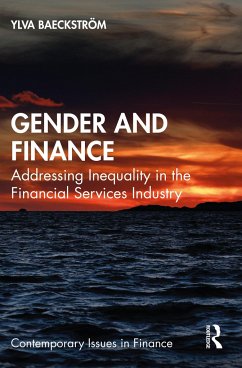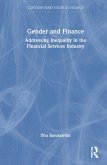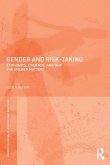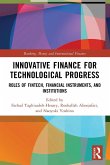This book examines the world of finance and the role of gender within it. It looks at the financial services industry, arguably the most powerful and remunerative sector that exists, and shows how it was created by men for men.
The author explains how historically women were excluded, how minimal progress has been made, and outlines how the sector still needs to change to function effectively in a modern, equal opportunities world. Addressing gender inequality in financial services is of utmost urgency and importance because of the extent to which it affects women in all stages of life. Women's exclusion in financial services is also mirrored by how men have been excluded from parenting through a similar set of societal expectations, government legislation and corporate policies. The author maintains that to succeed, we need to address both financial services and parenting. To do so we need regulatory support. Because of its power and dominance, the financial servicesindustry has the opportunity to lead this change and to champion gender equal practices. These practices are economically beneficial to all participants, not only female employees and consumers. We all need these benefits as we rebuild our economies following the COVID-19 pandemic. The book makes an important contribution to the critical and increasing awareness of gender concerns. It presents insights drawn from original research and data about gender biases.
The book is an essential secondary text for a range of university courses, including economics, finance and accounting, business studies and gender related courses, as well as MBAs and Executive Education programmes that focus on gender in business. It is also a must read for policy makers, managers in financial services institutions and any other businesses that seek to attract the growing market of female consumers, employees and business leaders.
The author explains how historically women were excluded, how minimal progress has been made, and outlines how the sector still needs to change to function effectively in a modern, equal opportunities world. Addressing gender inequality in financial services is of utmost urgency and importance because of the extent to which it affects women in all stages of life. Women's exclusion in financial services is also mirrored by how men have been excluded from parenting through a similar set of societal expectations, government legislation and corporate policies. The author maintains that to succeed, we need to address both financial services and parenting. To do so we need regulatory support. Because of its power and dominance, the financial servicesindustry has the opportunity to lead this change and to champion gender equal practices. These practices are economically beneficial to all participants, not only female employees and consumers. We all need these benefits as we rebuild our economies following the COVID-19 pandemic. The book makes an important contribution to the critical and increasing awareness of gender concerns. It presents insights drawn from original research and data about gender biases.
The book is an essential secondary text for a range of university courses, including economics, finance and accounting, business studies and gender related courses, as well as MBAs and Executive Education programmes that focus on gender in business. It is also a must read for policy makers, managers in financial services institutions and any other businesses that seek to attract the growing market of female consumers, employees and business leaders.








